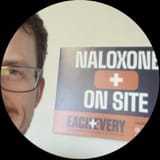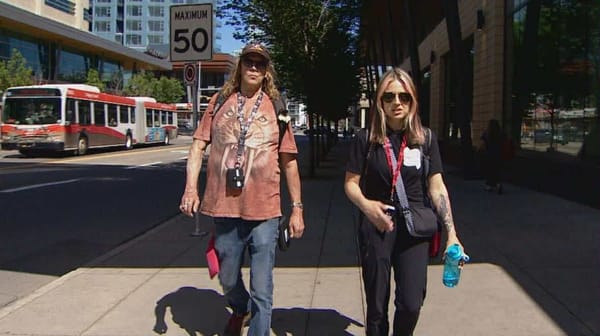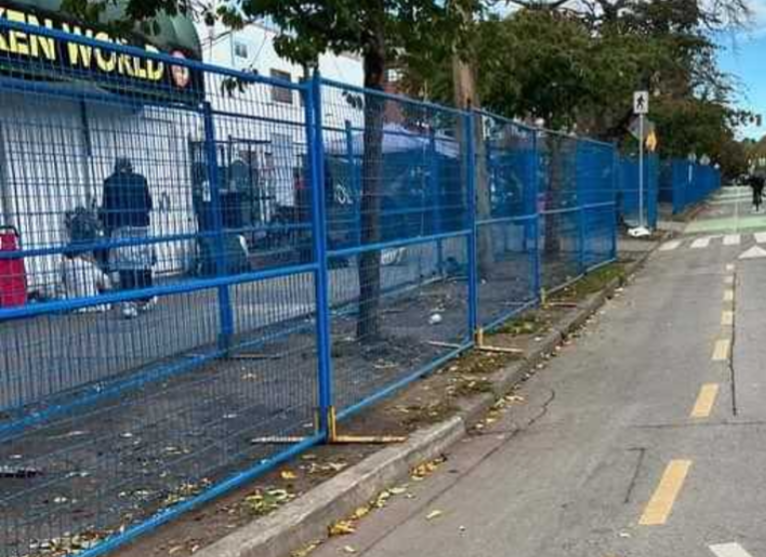Poilievre’s worldview feels broken
Whenever Pierre Poilievre rages about drug policy, those of us who follow the evidence choke on our own disbelief. It's time to cough it up.
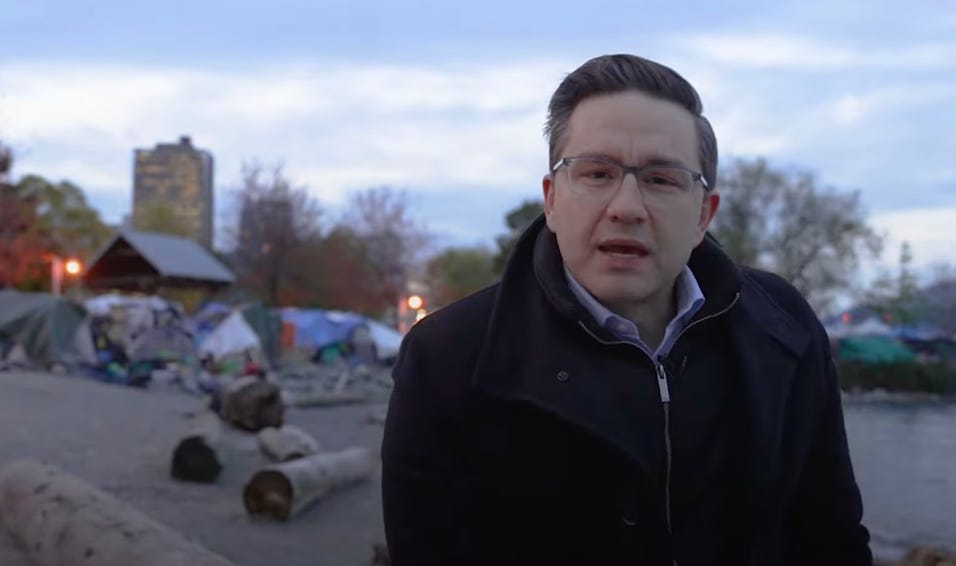
This piece is co-authored by Petra Schulz, co-founder of Moms Stop the Harm. She lives with her family in Edmonton, Alberta.
Pierre Poilievre, leader of the Conservative opposition and aspiring prime minister of Canada, made a statement (time stamp 16:40) on March 29 in response to the federal budget. It exemplifies the racist and Christian supremacist dog-whistling on which he is building his power ahead of an election.
His address to Parliament is loaded with lies and misinformation aimed at misdirecting his base, inflaming the war on drugs and discrediting regulation of the illegal drug market.
We’ll take this opportunity to systematically debunk his statement.
Nixon playbook, repackaged
Poilievre infuses his statement with a shrill overture connecting “savage violence” with “criminals and dangerous drugs.” It’s hard to imagine a more direct way to link anti-Indigenous racism with the fear of crime he is stirring up with his target audience.
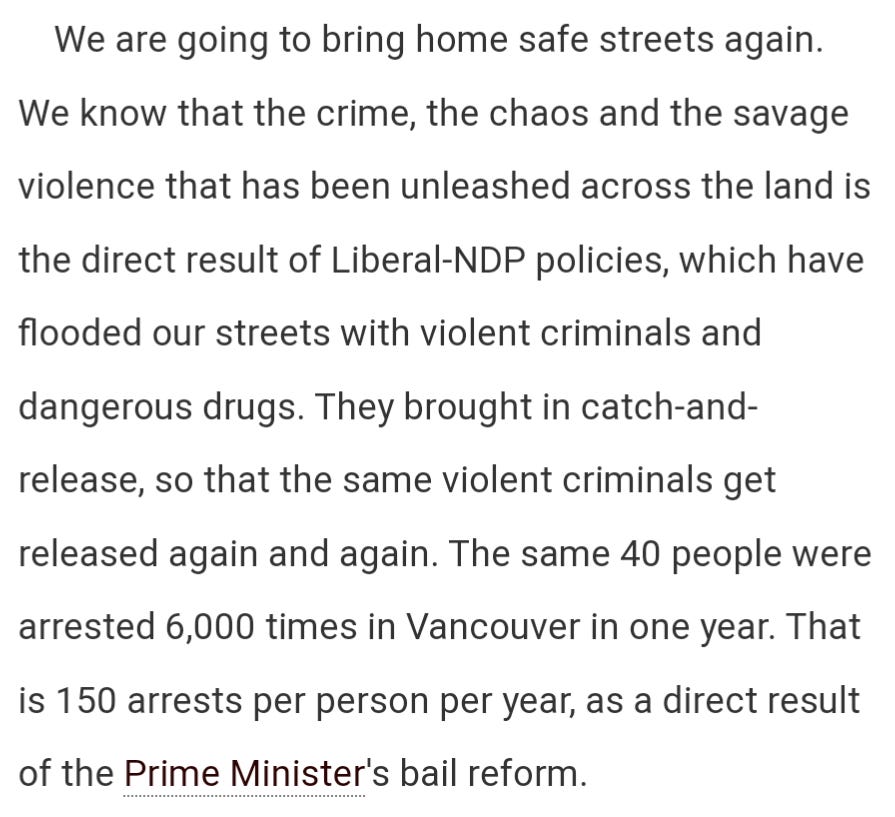
Interestingly, Poilievre also uses this moment to conjure up the trope of the ‘prolific offender.’ This was a major subject of the contemptuous Vancouver Is Dying documentary by alt-right activist Aaron Gunn. It’s commonly used by police to build fear around target populations — in this example, Vancouver’s Downtown Eastside.
For a better way to help these folks involved in subsistence crime, check out Euan’s November 2022 presentation to Calgary city council.
Related, Poilievre’s video rant Everything Feels Broken was a five-minute distillation of Vancouver is Dying. In this, he falsely claims that drug poisoning deaths have been halved in Alberta by the government’s abstinence-only focus. Nothing could be further from the truth. As recent data show, 1,630 Albertans died in 2022, the second-worst year on record. This is a drop of just 12% from 2021 and parallels similar declines in other provinces: evidence that broad drug supply stabilization or user adaptation are the main factors, not policy interventions.
Lies beget lies…
Poilievre claims that diverted drugs are being sold to children, a notion that was falsely leaked to Global News by abstinence-based recovery organization, Last Door Recovery Society. This is an outfit that benefits tremendously from the status quo, through its $1,227,000 sole-source contract with the Alberta Government and its chairing of the Recovery Capital Conference of Canada. No evidence from youths has been offered on diverted drugs.
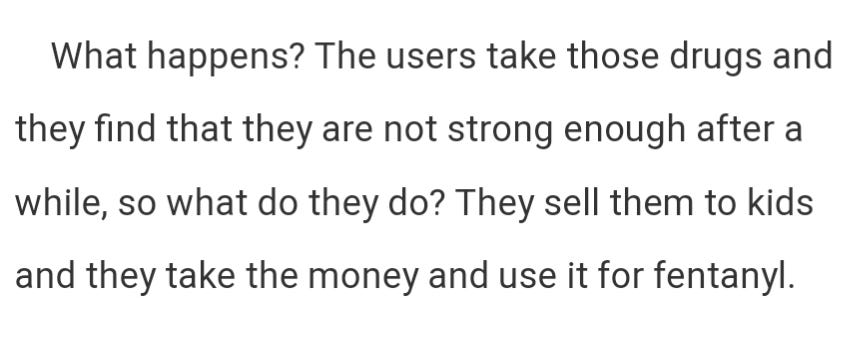
But more to the point, some users do divert regulated substances to ensure the safety of others or to buy what they actually need. Diversion is more accurately defined as helping or sharing, as outlined by a National Safer Supply Community of Practice policy brief. If pharmaceutical sharing is viewed as problematic against a backdrop of unprecedented death from unregulated drugs, it can easily be addressed by providing a regulated supply of substances sought by people at risk of poisoning.
Anyone interested in a first-person perspective on pharmaceutical sharing should hear Crackdown’s most recent episode.
…beget lies…
Poilievre tries to build fear around the paltry safe supply pilot programs with the visual that MySafe biometric machines are spilling drugs into the streets. If only: these systems are tightly regulated through prescription gatekeeping that ensures absurdly limited access by a select population in just a few Canadian cities.
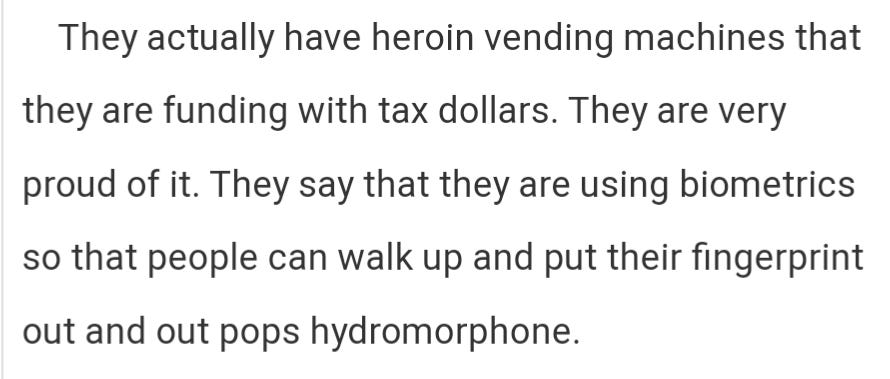
He then tries to build fear around this hydromorphone prescribing by linking it to oxycodone.

Gasp — almost heroin! While some opioids are indeed more potent than others, any pharmacist will tell you the strength is in the dose. This brings us to the key issue: substances that are regulated come at a known strength and can be dosed accordingly, unlike the toxic street supply. This gap in access is largely responsible for the skyrocketing morbidity and mortality among people who use illegal drugs.
As to the “danger” of heroin Poilievre is trying to invoke, pharmaceutical heroin has long been prescribed as treatment in European countries, including Switzerland, the UK and Germany for decades. Heroin-Assisted Treatment improves user outcomes, provides cost savings and minimizes subsistence crime among participants.
…beget lies
Poilievre is working hard to invoke the fear of overprescribing from the early 2000s, a time when the opioid death rate was a tiny fraction of what we are dealing with now. Nowadays, fewer than 5% of opioid deaths follow prescription drug use in Alberta. These facts were presented by former Chief Medical Officer of Health Dr. Deena Hinshaw to the 2022 Alberta Safe Supply Committee.
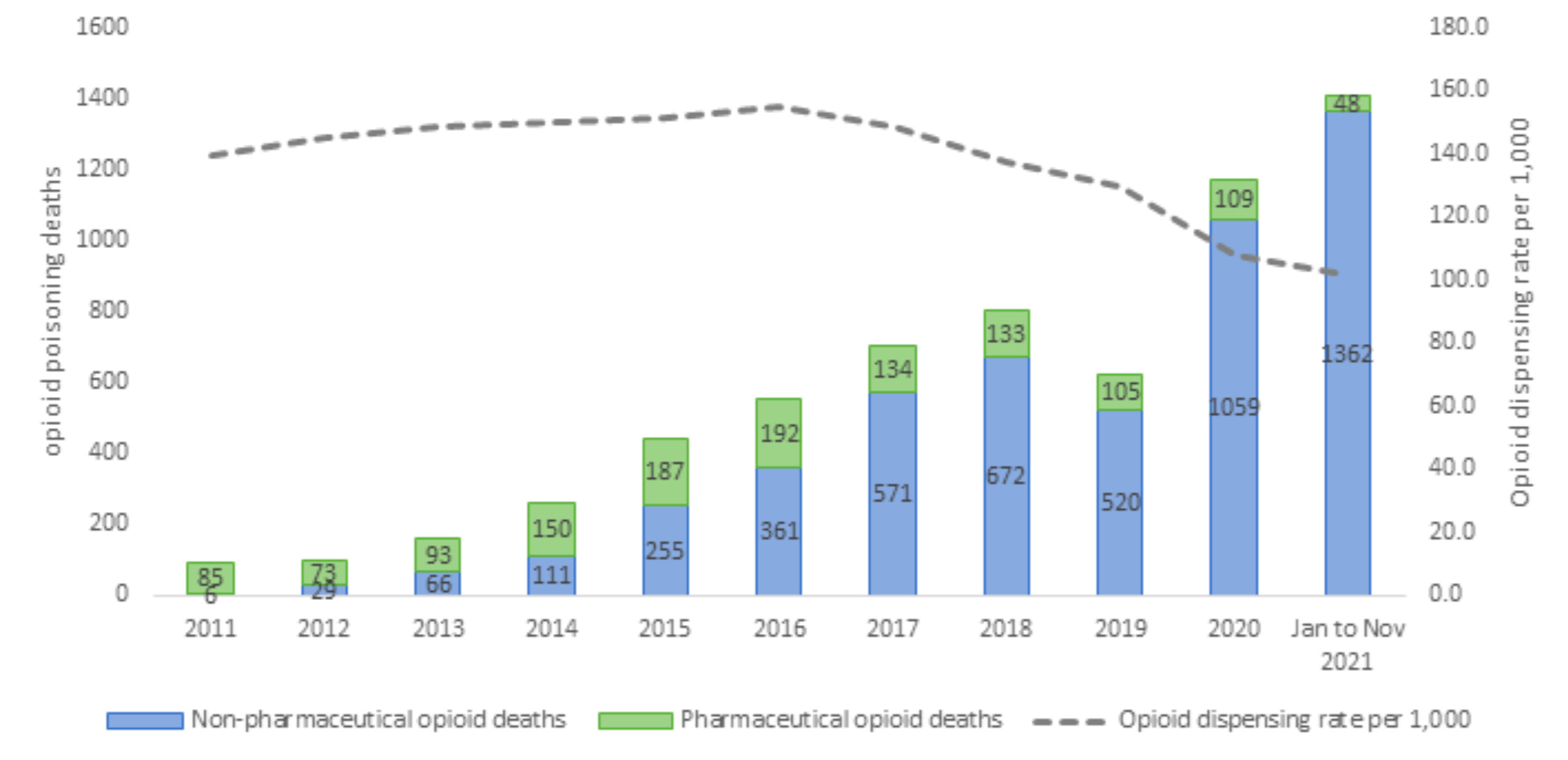
Poilievre has no doubt seen this graph, which also shows that as opioid prescribing was reduced by more than 30% in Alberta since 2017, opioid-related deaths have more than doubled. This is likely because patients cut off their medicines for chronic pain or substance use treatment are forced into the unregulated illegal market.
While Poilievre routinely points out that prescribed medication is paid for with public dollars, he fails to mention how we already pay for harms associated with drug prohibition. We all pay for policing, incarceration, emergency responses and preventable morbidities, while families pay for funerals. The London School of Economics deemed the war on drugs an economic failure in a 2014 report. Thirty-five thousand people in this country have paid for this failure with their lives since 2016.
Poilievre’s solution
Before launching into anecdote-as-evidence stories about people who use drugs, Poilievre makes a final moralistic judgement catering to the Christian right. In citing a “chance at redemption” for people who use drugs, Poilievre underscores the convenient view for privatized and Christianized treatment facilities that everyone who uses drugs needs treatment.
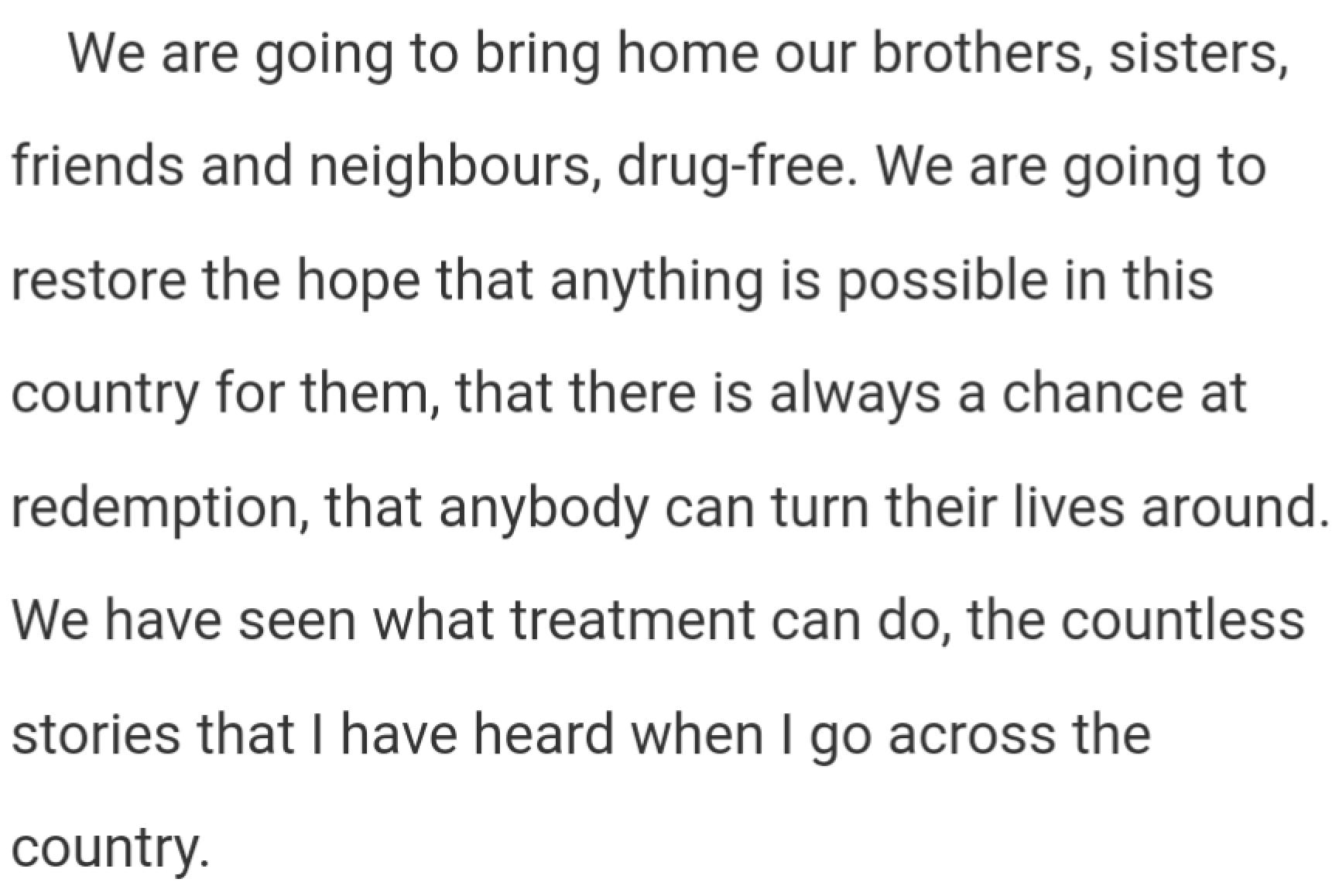
But his solutions — banning “hard drugs,” minimizing safe supply access, forcing people into abstinence — all of this already exists. It’s why so many are dying.
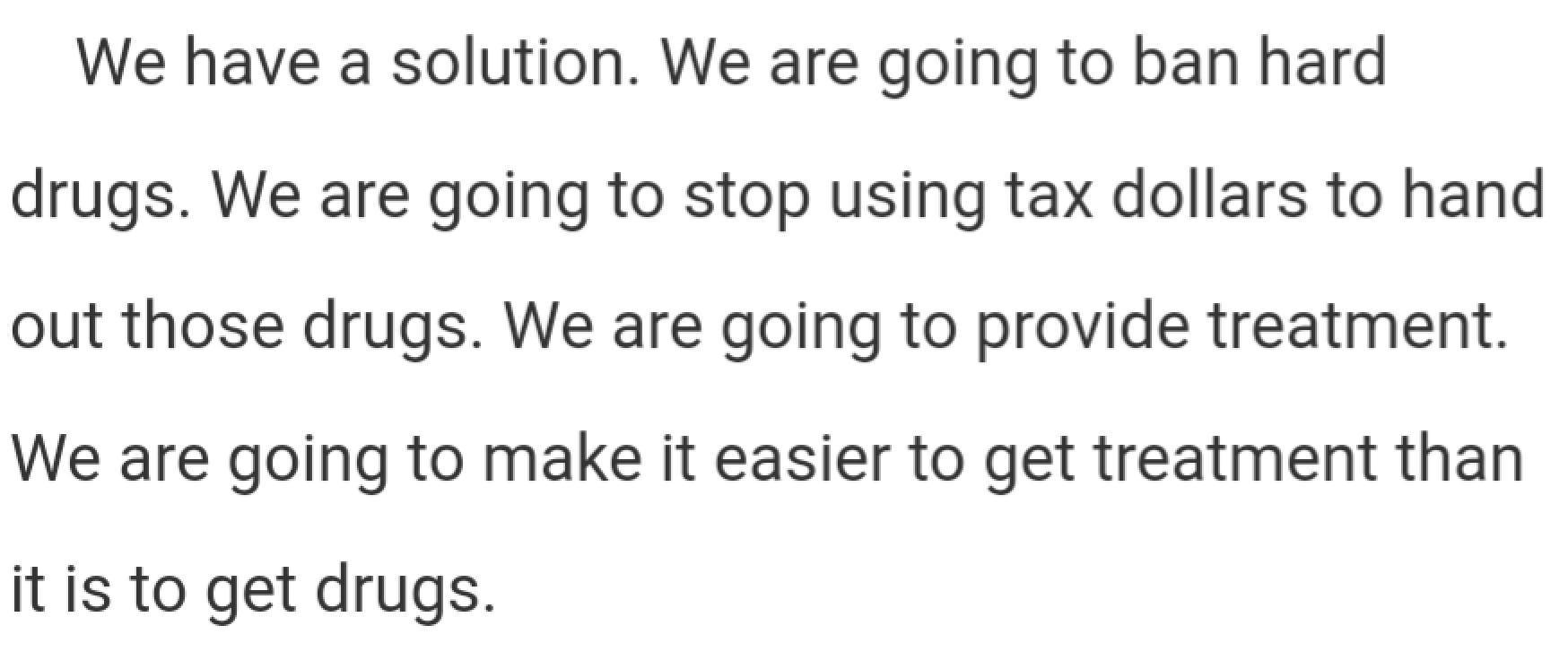
We won’t bother going into his American-informed attack on pharmaceutical manufacturers, because it requires an entire separate discussion. But needless to say, he’s lying about that too.
Every time Poilievre gives an inflammatory rant, he reveals how little he cares about the lives of drug users. He is using people as pawns in a time-honoured strategy: stirring up fear toward a selected out-group among an uninformed electorate and repackaging failed carceral tactics as the remedy.
It is time to cast these tactics aside for good and face the situation head-on by meeting drug-using communities where they’re at: with full regulation of the drug supply that people access for varied reasons that are none of Poilievre’s business.

